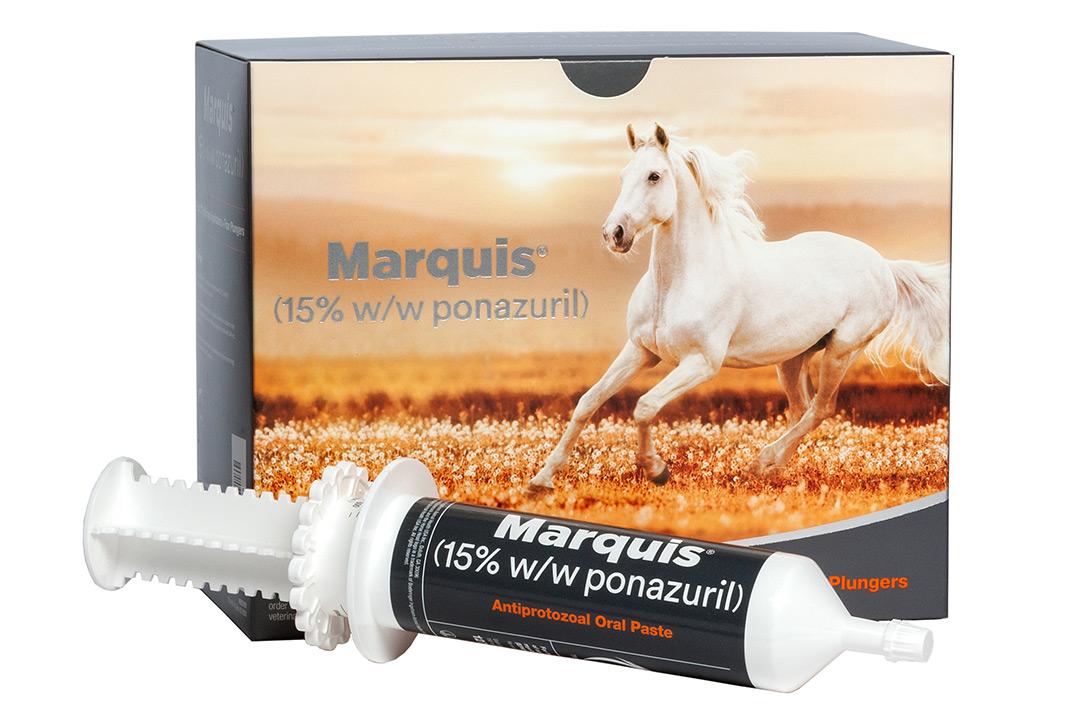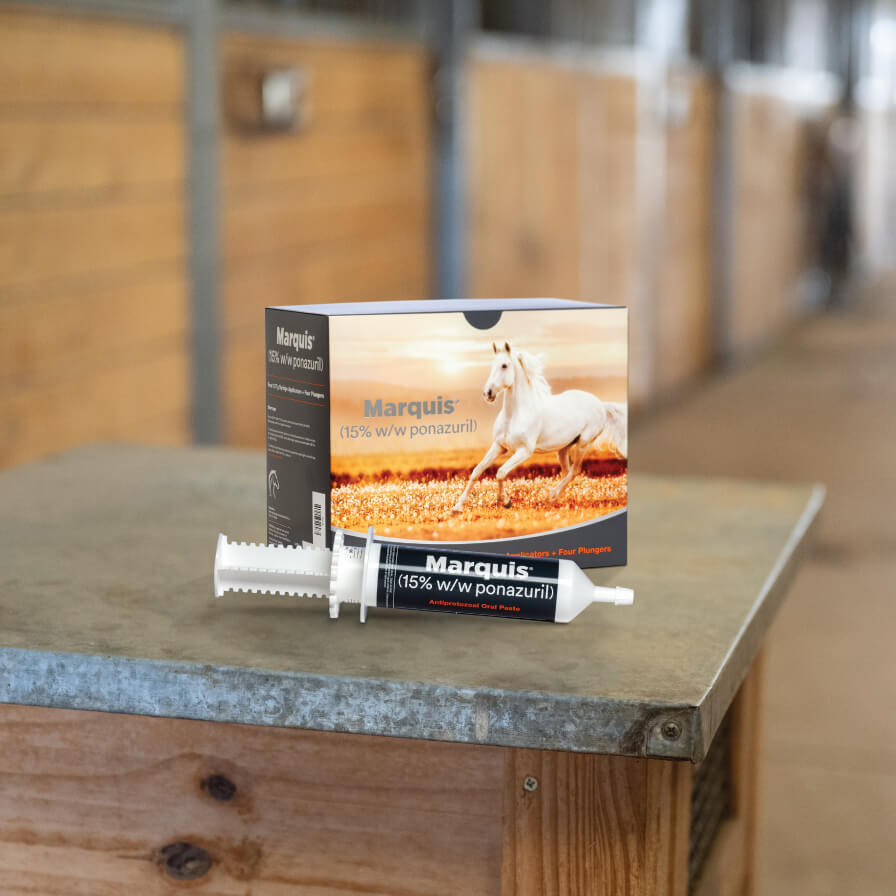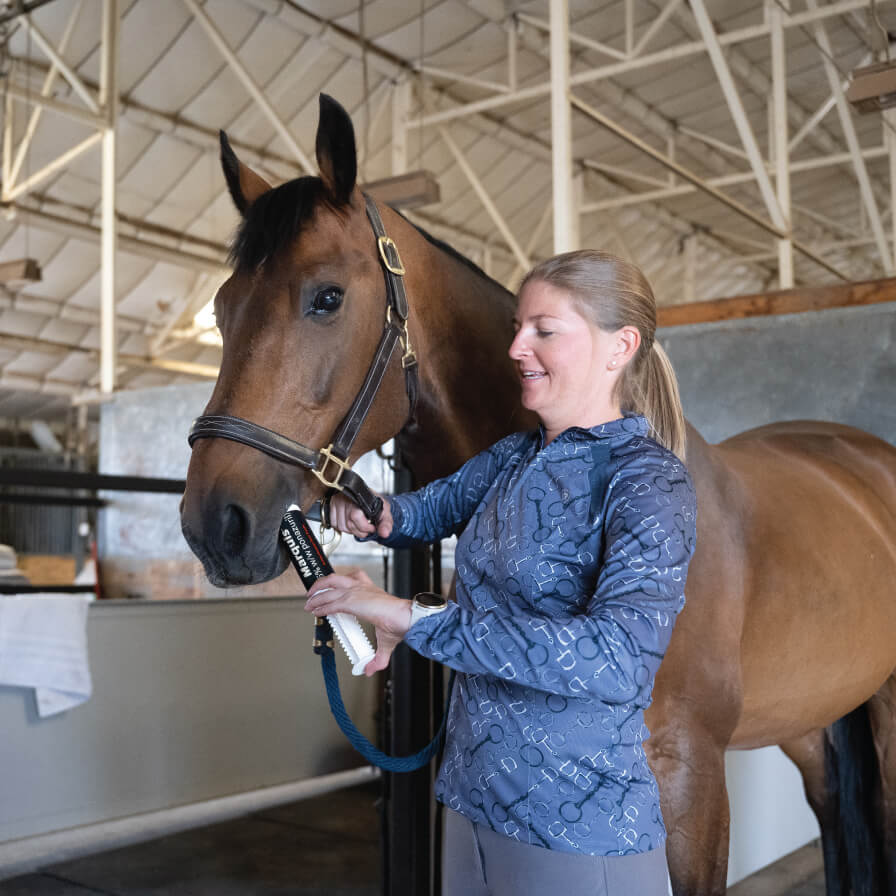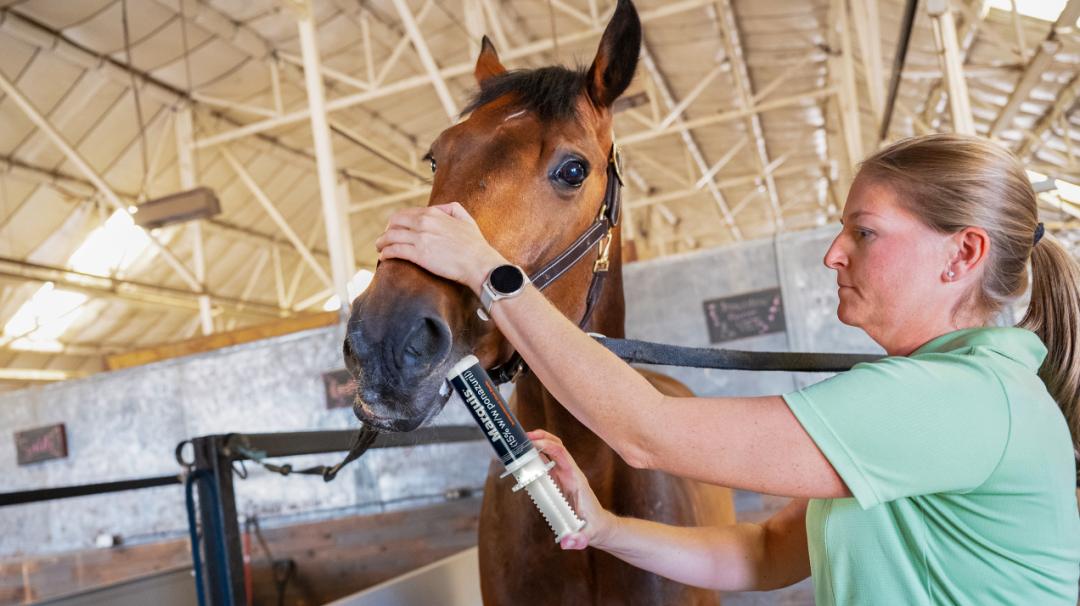MARQUIS is available with a prescription by a veterinarian, but can be administered by a horse owner.
Administer MARQUIS at a dose of 15mg/kg body weight as a loading dose for the first dose only. The loading dose is followed by a maintenance dose of 5mg/kg body weight once daily for a period of 27 additional days.
To administer MARQUIS, set the dosage ring to the appropriate weight, and be sure the horse’s mouth contains no feed. Deposit paste on the back of the horse’s tongue. To aid in swallowing of paste, gently raise horse’s head for a few seconds after dosing.
Store at 20–25ºC (68–77ºF), excursions permitted from 15–30ºC (59–86ºF).
Precautions: Prior to treatment, EPM should be distinguished from other diseases that may cause ataxia in horses. Injuries or lameness may also complicate the evaluation of an animal with EPM. In most instances, ataxia due to EPM in horses is asymmetrical.
Neurologic deficits, primarily ataxia, have been reported to acutely worsen during the early treatment period. In some horses, the worsening of the neurologic deficits was transient. (See Post-Approval Experience Section.)
Clinicians should recognize that clearance of the parasite by ponazuril may not completely resolve the clinical signs attributed to the natural progression of the disease. The prognosis for animals treated for EPM may be dependent upon the severity of disease and the duration of the infection prior to treatment.
IMPORTANT SAFETY INFORMATION: The safe use of MARQUIS in horses used for breeding purposes, during pregnancy or in lactating mares has not been evaluated. In animal safety studies, loose feces, sporadic inappetence, lost weight, and moderate edema in the uterine epithelium were observed. For use in animals only. Not for human use. Keep out of reach of children.







